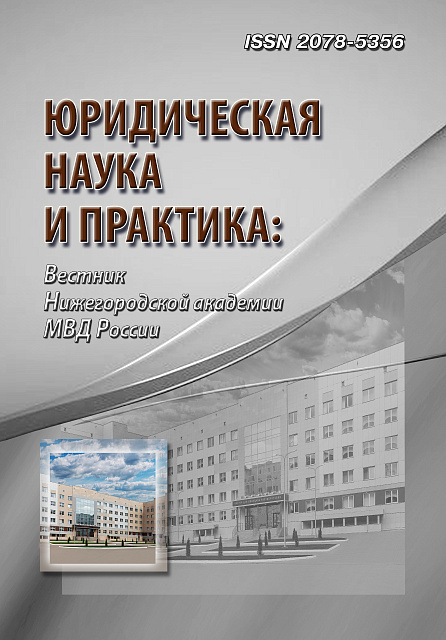The presented research gives the reader a basic idea of the essence of the Statute on punishments imposed by Justices of the Peace in 1864, the history of its creation, the features of its application, advantages and disadvantages. The author attempts to assess this normative legal act. Separately, an assumption is made about the allocation of experience applicable to solving topical problems of domestic law.
criminal legislation, historical and legal method, criminal offense, pre-revolutionary law
1. Abdulkhannyanov I. A. A retrospective study of criminal-legal fiction in the norms of the Military Article of 1715. Bulletin of the Russian University of Cooperation, 2022, no. 2, pp. 97-102. (In Russ.)
2. Rogova E. V. Criminal offense in the pre-revolutionary legislation of Russia. Izvestiya Irkutsk State Academy of Economics, 2011, no. 5, pp. 145-148. (In Russ.)
3. Nudel S. L. The system of crimes in the sphere of economic activity in the pre-revolutionary period. Scientific Bulletin of the Belgorod State University. Series: Philosophy. Sociology. Right, 2008, no. 8, pp. 77-88. (In Russ.)
4. Rubtsov D. I. Some features of fixing the institution of criminal punishment in the legislation of Russia of the second half of the XIX century. Bulletin of the Vladimir Law Institute, 2010, no. 3, pp. 190-192. (In Russ.)
5. Kuznetsov A. P. The Statute on punishments imposed by magistrates, 1864: a retrospective analysis. History of the development of criminal law and its significance for modernity: materials of the V International Scientific and Practical Conference held at the Faculty of Law of Lomonosov Moscow State University 26-27 May, 2005. Moscow: Lexest Publ., 2006, pp. 235-242. (In Russ.)
6. Abdulkhannyanov I. A. Retrospective study of criminal-legal fiction in the norms of the Cathedral Code of 1649. Legal science and practice: Bulletin of the Nizhny Novgorod Academy of the Ministry of Internal Affairs of Russia, 2022, no. 2, pp. 172-176. (In Russ.)












